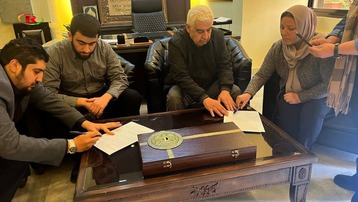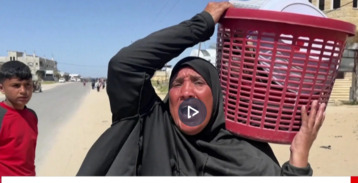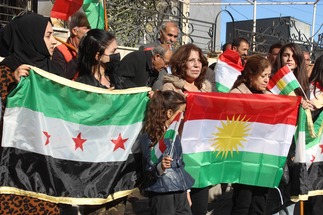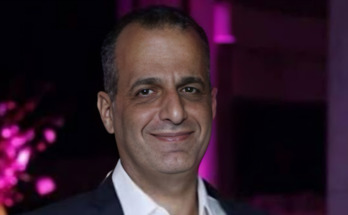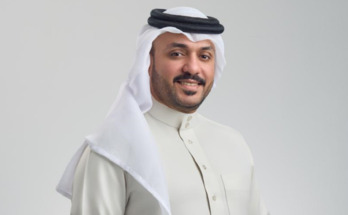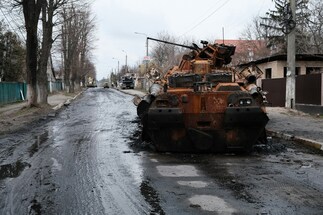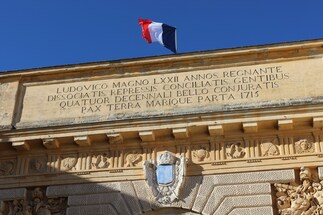-
Western Media Monitor the Representation of Minorities in the New Syrian Government
-
The new Syrian regime faces huge challenges in restoring stability and ending sectarian clashes amidst a severe economic crisis, with most Syrians living below the poverty line
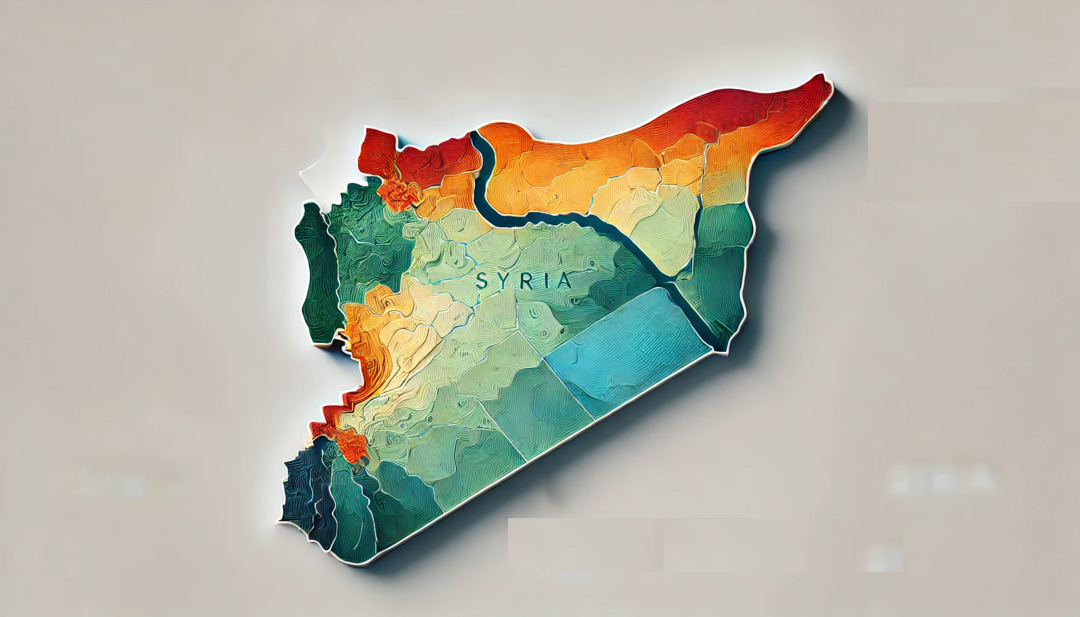
Western newspapers have taken an interest in the formation of the new Syrian government, which will serve as the executive team for the transitional period defined by interim president Ahmed Al-Shaar for five years. A notable aspect is the absence of a prime minister position.
This absence points to a different model of governance aligned with the temporary constitution, where the president directly handles executive powers, reflecting the centralization of decision-making during the transitional phase.
The Wall Street Journal reported that the announcement of the new government came at a time when Syrian leadership, under Ahmed Al-Shaar, seeks to "gain internal and international acceptance."
These efforts reflect the new regime's need to establish its legitimacy both domestically and internationally, especially after the period of instability following the fall of Bashar Al-Assad's decades-long regime.
The newspaper added: "Syria's ruling factions—led by Islamic movements—formed a new transitional government on Saturday, comprising several competent technocrats, as part of Damascus' efforts to bolster its legitimacy after approximately four months following the ousting of former president Bashar Al-Assad."
This description draws attention to the Islamic background of the new leadership, with its attempt to present a technocratic image capable of managing and rebuilding the country after years of conflict.
The New York Times noted that the selection of government members serves as a test of the commitment of what it called the "rebels" who ousted Bashar Al-Assad, to their promises of creating a government that represents all Syrians.
This description reveals Western media's view of the change in Syria, still using the term "rebels" despite their rise to power, reflecting a sense of anticipation and doubt about their ability to fulfill their promises.
The American newspaper described the swearing-in ceremony for the new ministers at the presidential palace overlooking Damascus, noting that the cabinet included experienced officials and one woman, while close allies of Al-Shaar held sensitive positions such as defense, foreign affairs, and interior.
This observation highlights the contradiction between the rhetoric of change and actual practice, where influential positions remain within a narrow circle of close allies, with symbolic representation of women.
The newspaper considered the formation to be "a partial response to pressures from Syrian society and minorities, as well as international demands to lift sanctions."
This analysis indicates that the government's formation is part of a complex balance of internal and external pressures, with the new regime attempting to appease different factions while focusing on the goal of lifting international sanctions.
The appointment of activists such as Raed Al-Saleh (leader of the "White Helmets") as Minister of Disaster Relief, Hind Qabwat (National Dialogue Conference Organizer) as Minister of Social Affairs, and a Kurdish minister for Education symbolizes a gesture towards the Kurdish minority.
The Independent focused on the new government's efforts to restore stability to war-torn Syria, noting that the cabinet includes a mix of religious and ethnic groups, but no prime minister, in line with the temporary constitution.
This focus reflects the primary priority for the coming phase: restoring stability after years of conflict, a huge challenge amidst ongoing sectarian and ethnic tensions.
The report highlighted that the formation retained the ministers of defense and foreign affairs from the previous government, while Anas Khattab (former head of intelligence) was appointed Minister of the Interior. The cabinet also included minorities, such as one Alawite and one woman, as a message to the West to support lifting the economic sanctions, which the UN has reported have left 90% of Syrians living below the poverty line.
This analysis unveils the strategic dimensions of the cabinet formation, aiming to secure international support for lifting sanctions that have worsened the humanitarian crisis in the country.
The report concluded by emphasizing that the government's primary task is to end the war and stop sectarian clashes, especially after recent violent events in coastal areas (Alawite strongholds) that resulted in hundreds of deaths.
You May Also Like
Popular Posts
Caricature
BENEFIT AGM approves 10%...
- March 27, 2025
BENEFIT, the Kingdom’s innovator and leading company in Fintech and electronic financial transactions service, held its Annual General Meeting (AGM) at the company’s headquarters in the Seef District.
During the meeting, shareholders approved all items listed on the agenda, including the ratification of the minutes of the previous AGM held on 26 March 2024. The session reviewed and approved the Board’s Annual Report on the company’s activities and financial performance for the fiscal year ended 31 December 2024, and the shareholders expressed their satisfaction with the company’s operational and financial results during the reporting period.
The meeting also reviewed the Independent External Auditor’s Report on the company’s consolidated financial statements for the year ended 31 December 2024. Subsequently, the shareholders approved the audited financial statements for the fiscal year. Based on the Board’s recommendation, the shareholders approved the distribution of a cash dividend equivalent to 10% of the paid-up share capital.
Furthermore, the shareholders endorsed the allocation of a total amount of BD 172,500 as remuneration to the members of the Board for the year ended 31 December 2024, subject to prior clearance by related authorities.
The extension of the current composition of the Board was approved, which includes ten members and one CBB observer, for a further six-month term, expiring in September 2025, pending no objection from the CBB.
The meeting reviewed and approved the Corporate Governance Report for 2024, which affirmed the company’s full compliance with the corporate governance directives issued by the CBB and other applicable regulatory frameworks. The AGM absolved the Board Members of liability for any of their actions during the year ending on 31st December 2024, in accordance with the Commercial Companies Law.
In alignment with regulatory requirements, the session approved the reappointment of Ernst & Young (EY) as the company’s External Auditors for the fiscal year 2025, covering both the parent company and its subsidiaries—Sinnad and Bahrain FinTech Bay. The Board was authorised to determine the external auditors’ professional fees, subject to approval from the CBB, and the meeting concluded with a discussion of any additional issues as per Article (207) of the Commercial Companies Law.
Speaking on the company’s performance, Mr. Mohamed Al Bastaki, Chairman BENEFIT , stated: “In terms of the financial results for 2024, I am pleased to say that the year gone by has also been proved to be a success in delivering tangible results. Growth rate for 2024 was 19 per cent. Revenue for the year was BD 17 M (US$ 45.3 Million) and net profit was 2 Million ($ 5.3 Million).
Mr. Al Bastaki also announced that the Board had formally adopted a new three-year strategic roadmap to commence in 2025. The strategy encompasses a phased international expansion, optimisation of internal operations, enhanced revenue diversification, long-term sustainability initiatives, and the advancement of innovation and digital transformation initiatives across all service lines.
“I extend my sincere appreciation to the CBB for its continued support of BENEFIT and its pivotal role in fostering a stable and progressive regulatory environment for the Kingdom’s banking and financial sector—an environment that has significantly reinforced Bahrain’s standing as a leading financial hub in the region,” said Mr. Al Bastaki. “I would also like to thank our partner banks and valued customers for their trust, and our shareholders for their ongoing encouragement. The achievements of 2024 set a strong precedent, and I am confident they will serve as a foundation for yet another successful and impactful year ahead.”
Chief Executive of BENEFIT; Mr. Abdulwahed AlJanahi commented, “The year 2024 represented another pivotal chapter in BENEFIT ’s evolution. We achieved substantial progress in advancing our digital strategy across multiple sectors, while reinforcing our long-term commitment to the development of Bahrain’s financial services and payments landscape. Throughout the year, we remained firmly aligned with our objective of delivering measurable value to our shareholders, strategic partners, and customers. At the same time, we continued to play an active role in enabling Bahrain’s digital economy by introducing innovative solutions and service enhancements that directly address market needs and future opportunities.”
Mr. AlJanahi affirmed that BENEFIT has successfully developed a robust and well-integrated payment network that connects individuals and businesses across Bahrain, accelerating the adoption of emerging technologies in the banking and financial services sector and reinforcing Bahrain’s position as a growing fintech hub, and added, “Our achievements of the past year reflect a long-term vision to establish a resilient electronic payment infrastructure that supports the Kingdom’s digital economy. Key developments in 2024 included the implementation of central authentication for open banking via BENEFIT Pay”
Mr. AlJanahi concluded by thanking the Board for its strategic direction, the company’s staff for their continued dedication, and the Central Bank of Bahrain, member banks, and shareholders for their valuable partnership and confidence in the company’s long-term vision.
opinion
Report
ads
Newsletter
Subscribe to our mailing list to get the new updates!

